You might have noticed that Facebook decided to give itself a makeover and is now strutting around with the name Meta Platforms Inc. But understand the good old social platform still sticks to its roots and goes by Facebook.
Now, the brains behind the AI magic is Meta AI, which used to go by the name Facebook AI. Yann LeCun, a big shot in the AI game, is the Vice President and Chief AI Scientist at Meta AI.
Let's discuss Meta AI and their take on artificial intelligence (AI). First off, Meta AI is mostly about researching.
They put out research papers and open-source AI tools. Through a program called Meta AI residency program (a year-long boot camp for brains AI projects), they share their projects and data with the world.
Meta AI researchers are scattered worldwide, making AI possible at places like Menlo Park, New York City, Seattle, Paris, and more.
Meta research is an academic research laboratory committed to sharing knowledge with the broader AI community. Don't confuse it with Facebook's Applied Machine Learning (AML) team—they're there on real-world applications.
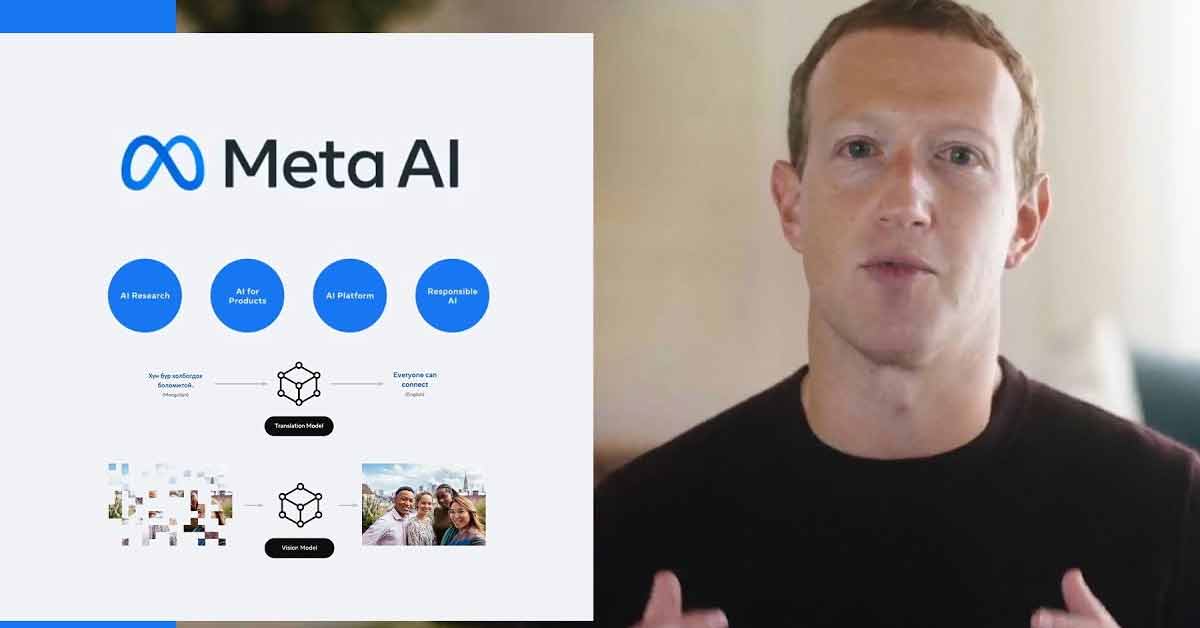
History Of Meta AI/ Facebook AI
Meta AI as Facebook Artificial Intelligence Research (FAIR) in 2013, spearheaded by the eminent Yann LeCun.
They are good at building partnerships on Artificial Intelligence with Google, Amazon, IBM, and Microsoft in 2016. Fast forward to 2018, and the torch passed to Jérôme Pesenti, who took the reins as president, eyeing the AI research rankings.
With the rebranding magic turning Facebook into Meta Platforms Inc., FAIR became Meta AI. Now, fasten your seatbelt for a glimpse into the future because, in 2022, Meta AI made waves by predicting the 3D shape of a staggering 600 million potential proteins in just two weeks.
Meta AI has some amazing ongoing research projects like BuilderBot, your virtual world genie activated by voice commands.
No Language Left Behind system, making automatic translation between written languages.
Universal Speech Translator provides instant speech-to-speech translation; well, Meta AI's got that, too.
How Meta Uses AI on Facebook

Meta's use of the AI Facebook platform and it's obvious. They use it in various ways, so let me list down a few of the main ways.
- Deep Text:
Facebook dives deep into understanding your messages with its wizardry called Deep Text. This tech breaks down messages into letters and even exclamation points, allowing machines to automatically identify word associations. It's not just about reading; it's about understanding slang, filtering out illegal info, and connecting you with the right ads.
- Translation:
More than half of Facebook's global user base speaks languages other than English. To overcome this language diversity, the Applied Machine Learning team devised an AI-driven automatic translation system, catering to over 800 million users monthly who leverage it to access content in their preferred language on their News Feed.
What sets Facebook apart is its distinctive vocabulary and communication style. It thrives on the dynamism of people constantly introducing new expressions, avoiding conventional capitalization, embracing regional nuances, and peppering conversations with emojis.
In 2011, Facebook upped its translation game with a new tool powered by Microsoft Bing. Now, users can transform Page posts into their native language effortlessly using the Translate feature.
Enhancing linguistic inclusivity, Facebook encourages users to contribute their own translations.
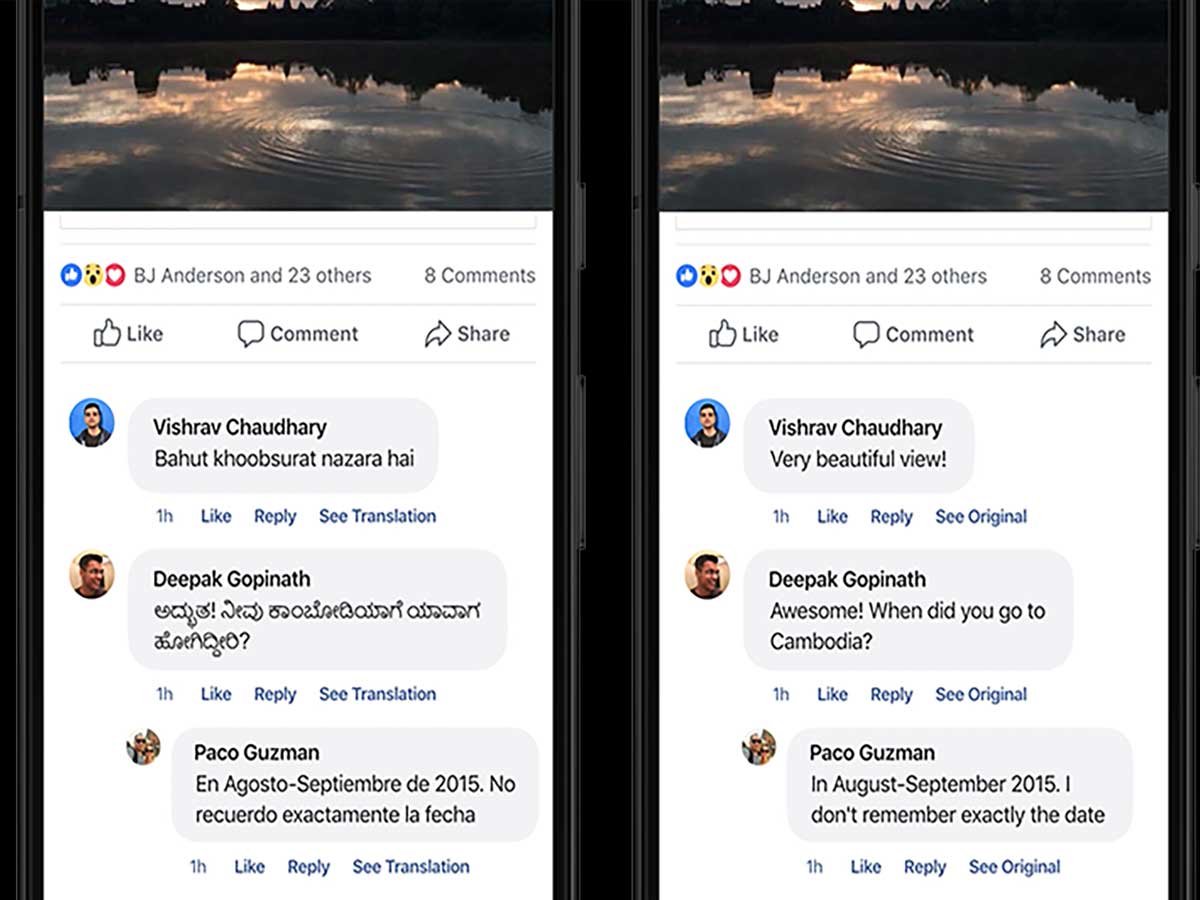
- Image Search:
Recalling specific details about when a particular moment occurred or who captured it in a photograph can often be a challenging task when reminiscing about cherished memories. However, Facebook's automatic image classifiers offer a solution to this hurdle.
In the pipeline is an innovative artificial intelligence (AI) tool from Facebook designed to grasp the content of your images, promising a notable enhancement in your Newsfeed's performance. This not only adds a practical dimension but also introduces a valuable feature.
It empowers the platform to intelligently respond to queries about a photo, a particularly beneficial aspect that aids visually impaired users in "seeing" the images shared on social media.

- Speaking Images:
Facebook is not just content with categorizing entire images; it is actively working on developing systems capable of analyzing photos at a granular level—down to individual pixels.
These systems can discern specific items within an image through image segmentation and understand their relationships. This innovative approach enables the creation of "talking images," providing a tactile experience for blind people to read images with their fingertips.
Additionally, it promises more efficient methods for searching through images, marking a significant leap in accessibility and user experience.
- Facebook's Bot API for Messenger Platform:
Facebook, joined by Microsoft CEO Satya Nadella, engages in a "chatbot arms race." The Messenger Platform introduces three competencies: Send/Receive API for text, graphics, and more; Generic Message Templates for engaging bot interactions; and a Welcome Screen + CTAs for personalizing the user experience.
- Improved VR Experience:
Enter the Oculus Quest, Facebook's solution for a seamless virtual reality experience. Using cutting-edge AI software, Oculus Quest analyzes user movements with every millisecond, minimizing issues like visual stuttering and latency. It's wire-free, liberating users from the constraints of earlier VR headsets.

- Face Recognition:
Facebook uses DeepFace, an advanced facial recognition program, to adeptly identify individuals in images. The company boasts that DeepFace, its cutting-edge image recognition engine, achieves an impressive success rate of 97%, surpassing humans' 96%, in determining whether two images portray the same person.
This technology, however, has sparked controversy, with privacy advocates expressing concerns about its potential misuse. The ability to identify faces in a crowd using high-resolution snapshots raised questions about the right to anonymity in public spaces.

In response to these concerns, Facebook, in 2013, agreed to remove this functionality for European accounts, which utilized an older facial recognition algorithm devoid of Deep Learning.
While Facebook has remained relatively silent about this technology, it is speculated that the company is awaiting the resolution of privacy lawsuits before unveiling further details about its implementation plans.
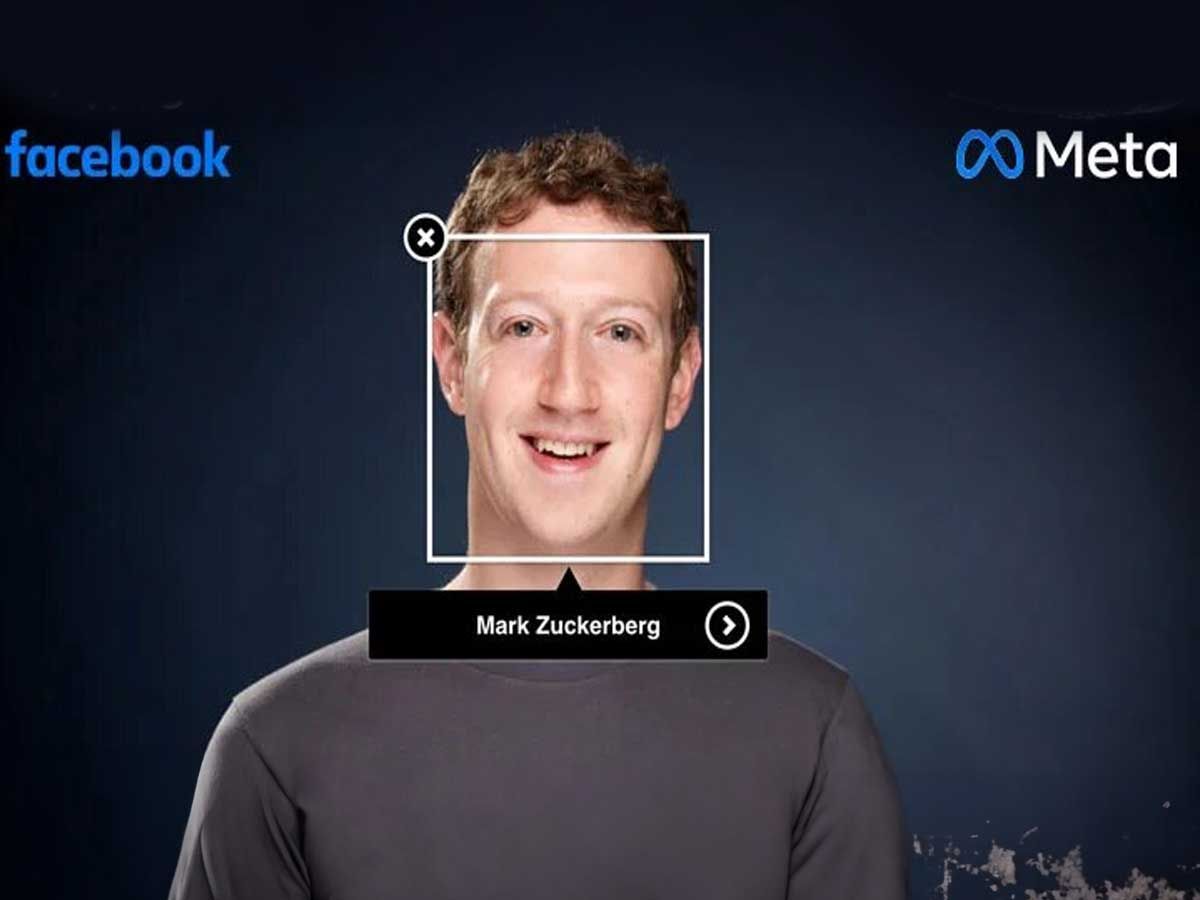
- Personalized Advertising:
Facebook's business thrives on personalized ads, thanks to deep neural networks. By letting machines learn about users and group them for insightful ad delivery, Facebook aims to outshine rivals like Google. It's not just about showing ads; it's about making them tailored and relevant to keep you hooked.
How does Facebook use AI in advertising?
Have you ever wondered how those online ads know exactly what you're into? It's Artificial Intelligence powered targeted advertising algorithms. These algorithms pair info about a product and targeted audiences to show ads that might just be what you want.
Now, when it comes to ads, there are a few factors that determine the success of the campaign.
- Budget: the higher your budget is, the more chances your ad has to be shown
- Relevance: the most relevant ad will be shown to a person
- Interactions: it matters how people interact with the ad, e.g. tap on it, share it, hide it, report it, etc.
- Compliance with the platform's rules: if there is even a potential breach of the ad platform's rules (e.g. Facebook Advertising Policies), the chances of winning the auction decrease significantly.
How is AI used in advertising?

So, no surprise it's artificial intelligence (AI) and machine learning (ML) are how Facebook knows you. In advertising, AI and ML process loads of data and make solutions for advertisers.
Back in 2014, the marketing world got a facelift with the rise of programmatic advertising. This term means automated ad buying. Brands could now snatch up ad spaces online without the manual hassle. It made ad delivery faster, more efficient, and, best of all, cheaper.
AI is powering our future, and why not use AI for programmatic advertising's future? AI can easily create ad personalization, figure out the perfect ad spot, manage ad spending wisely, and even crunch the numbers for ad analytics.
But, programmatic advertising isn't always going according to the plans. To use AI-driven ads, you need money and data. The ads are pricey, and you might not see an instant return on that investment. Businesses must be ready to splash the cash for data gathering and finding the right audience and placements.
Facebook plays the ad game.
Facebook, like other ad platforms, uses machine learning. Facebook Ads, for instance, goes all-in with its Power 5 framework, a set of AI-powered methods for advertisers, from auto-advance d matching to dynamic ads.
When it comes to measuring the ad, Facebook rolls out the data-driven attribution (DDA) model powered by machine learning.
Here's How to Stop Facebook from Using Your Data to Train AI
Facebook playing with your personal data is not hot news. But- Meta, the parent company of Facebook, uses your data to train their language model, Llama 2, including the upcoming AI chatbot. Your data is basically the raw material for Facebook's AI power.
Worried about the privacy invasion? Meta doesn't just stop at your Facebook activity. It digs deeper into a lot of publicly available info and Facebook, Threads, and Instagram to train its AI. Now, if you think you can dodge this data siphoning by just quitting Facebook, think again.
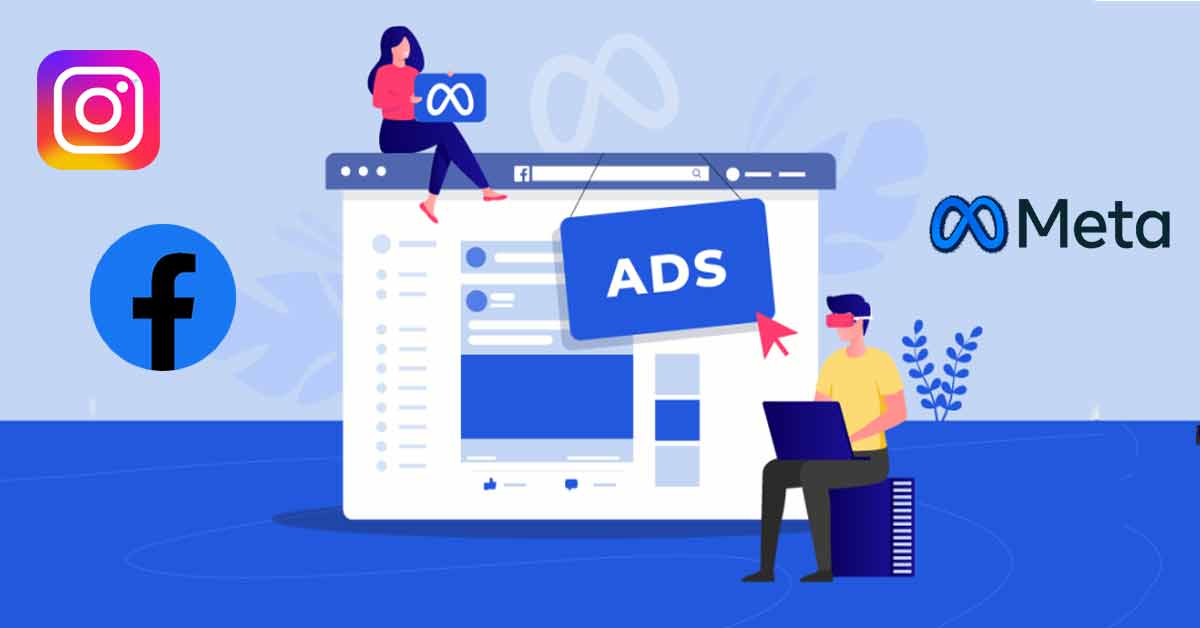
Deleting your account won't erase your data; Meta keeps your data for 90 days. And – even if you're not on Facebook, Meta probably has a dossier on you. Thanks to the likes of Meta Pixel, Social Plugins, and other Meta advertising software scattered across the web.
But you can take control, sort of. Let me tell you how. Use Off-Facebook Activity (OFA) tools to discover what Facebook knows about you. Head to the Off-Facebook Activity page, type in your Facebook password, and you'll see the sites and services sharing data with Facebook. If you are concerned about a few? Click on them and hit "Turn off future activity" or "Clear History."
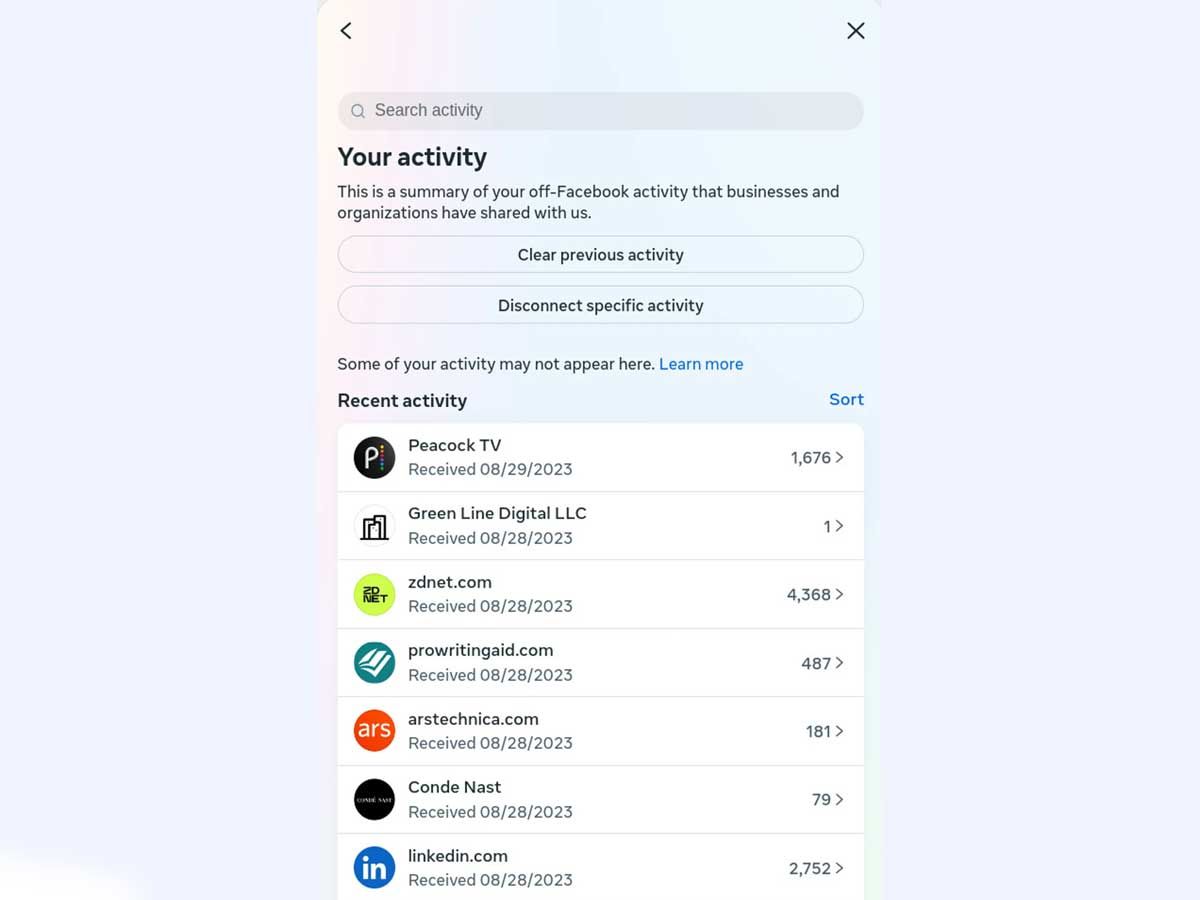
There is one more thing you could do. That's breaking the AI data cord. Navigate to the Generative AI Data Subject Rights page, drop a request to Meta, and select the best option that suits you. Thanks to stricter privacy laws, EU citizens have a better shot at tweaking their data destiny. With this move, you can remove your OFA data.
But after everything, Meta will still have a backstage pass to all the data you've fed into Facebook, Instagram, and Threads. So remember that, too.
How does Facebook identify Fake accounts using AI?
On the Facebook platform, it's a constant battle between real users and those sneaky bots trying to slip in unnoticed and even fake accounts that violate their policies.
These bots make up fake accounts by the thousands every day, getting made-up email addresses, fake pictures, and data that looks legit. However, these accounts seriously threaten the site and its users.
Scammers use them to spread phishing links, spam everyone's feed, promote violence, and even support terrorism. To fight these meta-use machine learning and human intelligence.
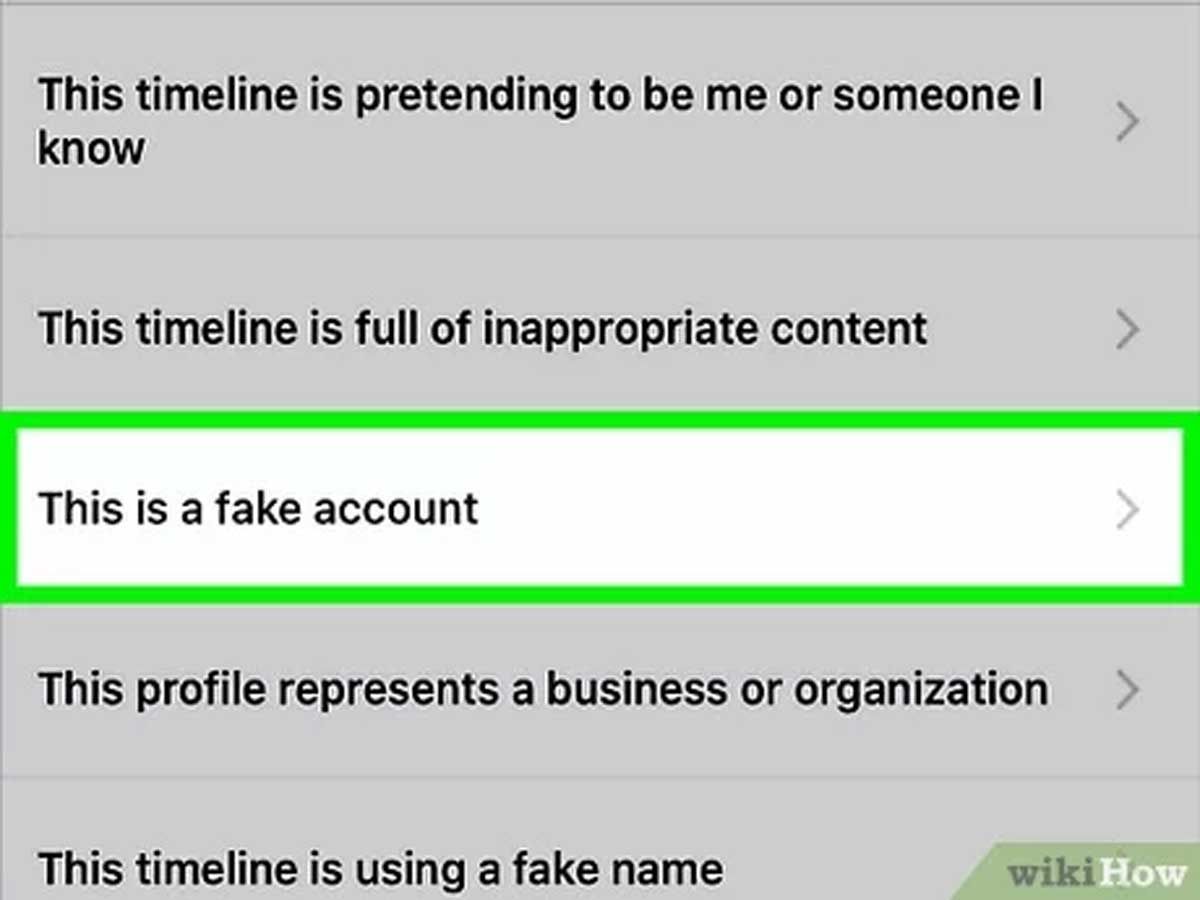
To spot these, Facebook got machine learning algorithms and hand-coded criteria doing the heavy lifting. When these fake accounts try to do something that goes against policies or are detected by the algorithms, they are fake accounts, not real people; machine learning algorithms and hand-coded criteria block fake accounts.
Here's where it gets interesting – when these fake accounts manage to dodge the initial blockings and start causing a stir, Facebook's got its detection system in overdrive—relying on cutting-edge AI techniques and user reports, Especially when users report suspicious activities. Facebook's got a three-step plan, a dynamic trio of processes for account screening.
- Stage of Creation: Specialized detection technology prevents account creation instantly, identifying patterns like the use of the same IP address.
- Stage of Activation: Machine learning algorithms look for suspicious behaviors post-registration, leveraging knowledge from the elimination of previous fraudulent accounts.
- Stage of Blocking Registered Accounts (Deep Entity Classification - DEC): DEC takes center stage, surpassing human capabilities in detecting problematic accounts based on characteristics like age, geography, and friend counts. DEC's AI scrutinizes and blocks these accounts if deemed defective.













